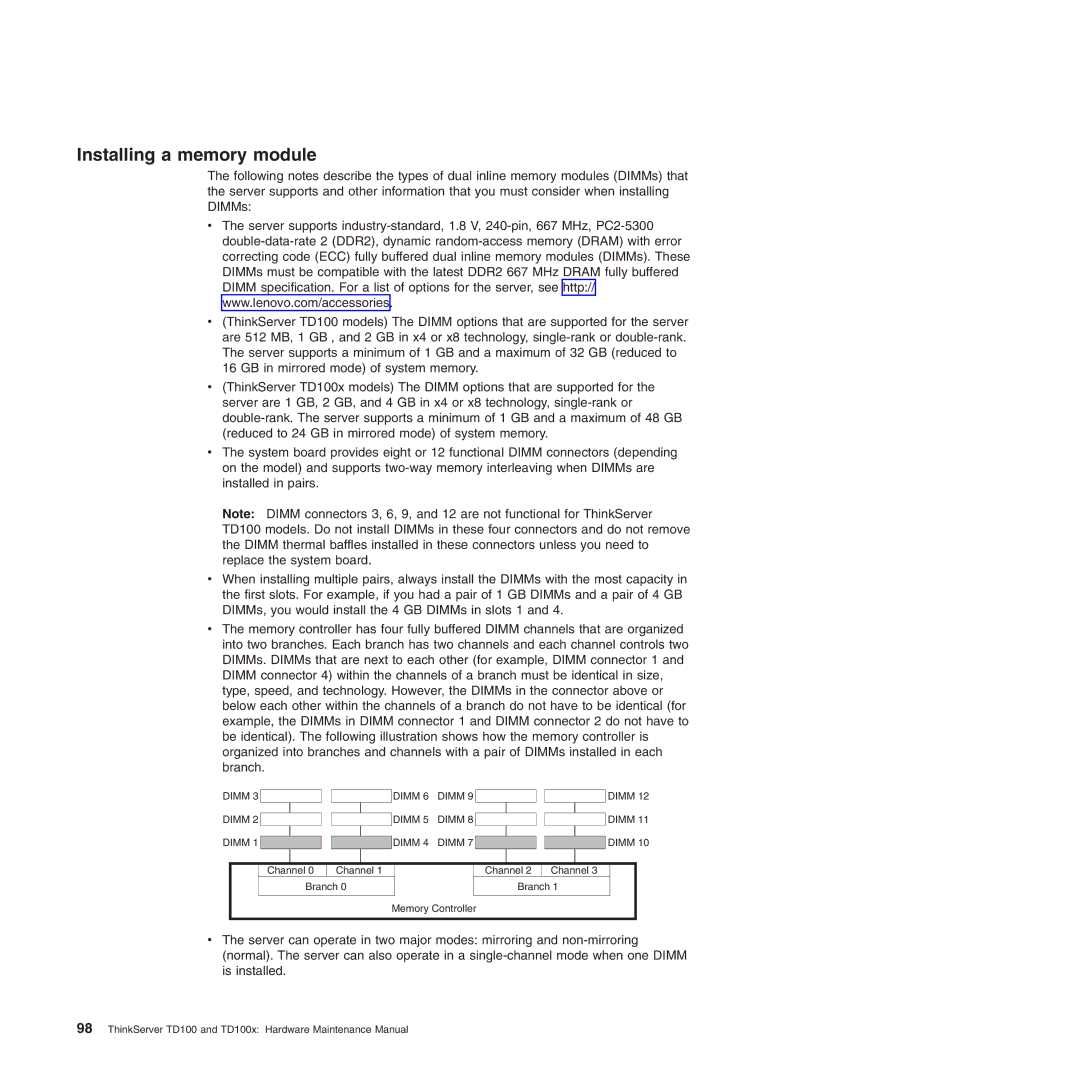
Installing a memory module
The following notes describe the types of dual inline memory modules (DIMMs) that the server supports and other information that you must consider when installing DIMMs:
vThe server supports
v(ThinkServer TD100 models) The DIMM options that are supported for the server are 512 MB, 1 GB , and 2 GB in x4 or x8 technology,
v(ThinkServer TD100x models) The DIMM options that are supported for the server are 1 GB, 2 GB, and 4 GB in x4 or x8 technology,
vThe system board provides eight or 12 functional DIMM connectors (depending on the model) and supports
Note: DIMM connectors 3, 6, 9, and 12 are not functional for ThinkServer TD100 models. Do not install DIMMs in these four connectors and do not remove the DIMM thermal baffles installed in these connectors unless you need to replace the system board.
vWhen installing multiple pairs, always install the DIMMs with the most capacity in the first slots. For example, if you had a pair of 1 GB DIMMs and a pair of 4 GB DIMMs, you would install the 4 GB DIMMs in slots 1 and 4.
vThe memory controller has four fully buffered DIMM channels that are organized into two branches. Each branch has two channels and each channel controls two DIMMs. DIMMs that are next to each other (for example, DIMM connector 1 and DIMM connector 4) within the channels of a branch must be identical in size, type, speed, and technology. However, the DIMMs in the connector above or below each other within the channels of a branch do not have to be identical (for example, the DIMMs in DIMM connector 1 and DIMM connector 2 do not have to be identical). The following illustration shows how the memory controller is organized into branches and channels with a pair of DIMMs installed in each branch.
DIMM 3 ![]()
![]() DIMM 2
DIMM 2 ![]()
![]() DIMM 1
DIMM 1 ![]()
![]()
DIMM 6 | DIMM 9 |
DIMM 5 | DIMM 8 |
DIMM 4 | DIMM 7 |
![]()
![]() DIMM 12
DIMM 12
![]()
![]() DIMM 11
DIMM 11
![]()
![]() DIMM 10
DIMM 10
| Channel 0 | Channel 1 |
|
| Channel 2 | Channel 3 |
|
| Branch 0 |
|
| Branch 1 |
| ||
|
|
|
|
|
|
|
|
|
|
| Memory Controller |
|
| ||
|
|
|
|
|
|
|
|
vThe server can operate in two major modes: mirroring and
